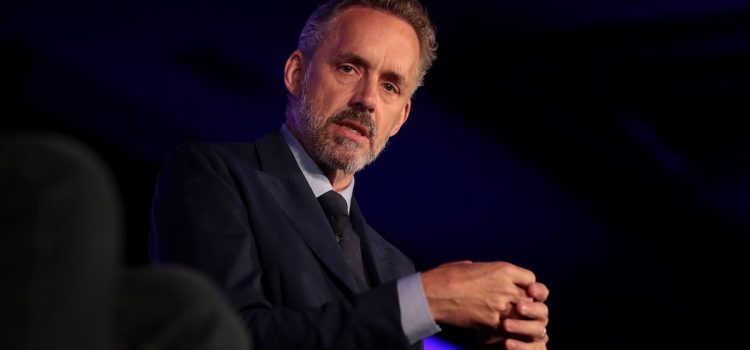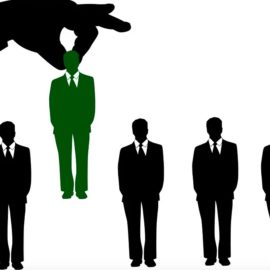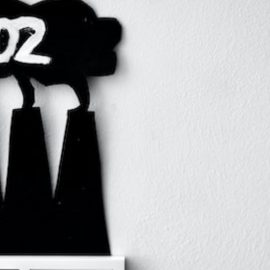
What does Jordan Peterson think about Canadian society, emerging technology, and education? What’s a conversation between him and Theo Von like?
In an episode of This Past Weekend with Theo Von, Jordan Peterson delved into a captivating exploration of pressing issues shaping our world. He navigated diverse concerns such as free speech, climate change, digital ethics, and personal growth—offering insightful perspectives and engaging dialogue.
Continue reading for a summary of the podcast episode.
Image source: Gage Skidmore
A Conversation Between Theo Von & Jordan Peterson
In the interview with Theo Von, Jordan Peterson shared a deep understanding of contemporary challenges and a hope-fueled vision for the future. The conversation was fueled by insightful exchanges and actionable guidance.
Navigating Social and Legal Systems
In their conversation, Theo Von and Jordan Peterson explored the fascinating differences between American and Canadian societies. They wove through distinct cultural threads, highlighting American values of entrepreneurship and adventure, deeply rooted in life, liberty, and the pursuit of happiness. In contrast, they painted a picture of Canadian society as more submissive and structured, emphasizing principles of peace, order, and good governance. This insightful comparison sparked curiosity and invited reflection on the unique dynamics that shape each nation.
The Battle for Free Speech: Legal Constraints Explored
Jordan Peterson opened up about his concerns regarding legal challenges arising from his public critiques, including criticism of Canadian Prime Minister Justin Trudeau. He expressed disagreement with court-ordered social media retraining mandates, amplifying his worries about potential limitations on free speech. Additionally, Peterson shed light on perceived shifts within Canadian institutions, mentioning changes in media outlets such as the Canadian Broadcasting Corporation and a perceived leftward political drift under the Trudeau government. These insights sparked a conversation about the complex interplay between individual expression, institutional dynamics, and the evolving landscape of free speech in the digital age.
Diving Deep: Economic Fluctuations and the Impact of Climate Change
Theo Von and Jordan Peterson navigated beyond legal roadblocks into the complex realm of economics. They explored the ripple effects of climate change and unpredictable global events that can unsettle economic forecasts. Peterson championed the advantages of a free-market economy, citing a historical wager between Julian Simon and Paul Ehrlich. Simon’s win challenged the notion that resource scarcity and population boom equate to inevitable disaster. This sparked optimism, further fueled by innovative companies such as Vespene, who convert landfill methane into energy for bitcoin mining, showcasing a solution-oriented approach to resource scarcity and climate challenges. Adding another layer to the discussion, Peterson suggested eliminating poverty could act as a fast-track route to environmental sustainability, leaving listeners with a thought-provoking proposition and a sense of possibility.
A Closer Look: Medical Ethics and Cultural Contrasts
Peterson’s views on gender-affirming surgeries for minors, which have sparked legal controversies, were acknowledged. The conversation then navigated the cultural landscape, highlighting differences in comedic contributions between American and Canadian societies. Names such as Norm Macdonald and Jim Carrey—and even shows such as Trailer Park Boys—emerged as points of comparison. Interestingly, Peterson raised concerns about the “tall poppy syndrome” in Canada, where challenging established norms can attract criticism. His own experiences as a vocal critic of the Canadian government, particularly his stance on free speech, drew significant attention throughout the dialogue. This created a nuanced discussion that explored individual expression, cultural norms, and the complexities of free speech in contemporary society.
The Digital Era: Influence and Implications
In the interview with Theo Von, Jordan Peterson explored the complex dance between free speech and online challenges, delving into the dangers of misinformation, manipulation, and “dark tetrad” individuals. He unpacked the double-edged sword of deep-fake technology, considering its potential benefits and risks while grappling with the question of authenticity in a digital age.
Charting New Territories: The Disruptive Power of Communication Technology
The conversation tackled the pressing issue of free speech in the digital age. Peterson drew on his own experiences with legal challenges stemming from his critiques, highlighting the dangers posed by online manipulation and “dark tetrad” individuals who disrupt civil discourse. He acknowledged the democratizing power of digital platforms but raised concerns about how they can foster hostility, a stark contrast to the norms of face-to-face interactions. This sparked a vital discussion about navigating the complexities of free speech in an online world increasingly susceptible to negativity and manipulation.
Unmasking Digital Threats: Misinformation and Other Challenges
The conversation delved into the dark side of the digital age, with Peterson highlighting the rampant spread of misinformation, particularly on platforms such as X (Twitter). He even shared techniques to navigate around biased AI tools, hinting at underlying ideological agendas. Theo Von added his voice, raising concerns about the anonymity-fueled exploitation rampant on social media and questioning the effectiveness of potential restrictions.
Peterson further identified a group he calls the “dark tetrad”—individuals exhibiting manipulative and disruptive behaviors online. He sees them as major contributors to the toxic online culture. Also, he points to the criminal exploitation of vulnerable groups such as the elderly, suggesting a possible solution involving separating anonymous from identifiable users. However, he acknowledged the complexities of digital identification verification in this context.
This part of the conversation painted a troubling picture of the challenges posed by online misinformation and manipulation, prompting reflection on potential solutions while acknowledging the complexities involved.
The Double-Edged Sword: Deep-Fake Technologies and Their Potential
Von and Peterson grappled with the double-edged sword of deep-fake technology. They acknowledge the risks to electoral integrity but also envision potential benefits, such as virtually resurrecting historical figures. This sparked a discussion about preserving the importance of genuine interactions despite technological advancements. Peterson shared his unsettling experience with a synthetic call impersonating Ben Shapiro, showcasing the tech’s proficiency.
The conversation opened up to possibilities such as AI-generated historical figures, with Theo Von even humorously suggesting AI-rendered historical performances. This bit of the interview highlighted the complex potential of deep-fake technology, prompting consideration of its benefits and drawbacks alongside the need for authenticity in a technology-driven world.
The Journey of Personal Growth and the Role of Education
Next, the interview turned to education’s future, exploring Jordan Peterson’s revolutionary “Peterson Academy” that aims to disrupt traditional models and offer globally accessible learning. Next, it delved into personal growth, including Theo Von’s reflections on fame and Peterson’s wisdom on self-awareness, drawing from Jungian psychology. Then, the conversation expanded to encompass the impact of technology on spirituality, ego management, and finding meaning in a changing world.
Redefining Learning: The Rise of Online Education and Equal Access
Jordan Peterson dived into his ambitious vision for revolutionizing education with his online venture, Peterson Academy. Driven by a desire to democratize access to high-quality learning, he aims to dismantle traditional accreditation models and offer affordable academic courses.
The academy challenges the status quo by emphasizing competency over conventional qualifications. Rigorous testing and deep understanding of the material act as the cornerstones of its certification process. This bold approach urges employers to value skills and experience on par with traditional degrees. Peterson’s own expertise in education and skill assessment lends further weight to the academy’s innovative model, sparking a thought-provoking discussion on reshaping the future of education.
Charting Personal Paths: The Importance of Life Goals
Theo Von shared his personal struggles with rising fame and potential ego inflation. Peterson, drawing from gratitude and hardship’s lessons, emphasized appreciating peaceful times. He delved into the psychology of seeking a father’s approval, viewing it as a positive, ancestral yearning for recognition. But, he emphasized the importance of Jungian individuation—creating a distinct identity separate from parental figures—to achieve balanced personal growth and goal pursuit.
Bridging Worlds: Technology’s Impact on Spiritual Connections and Satisfaction
Von and Peterson embarked on a wide-ranging exploration, encompassing the impact of digitalization on spirituality, managing egos, seizing opportunities, and navigating privilege responsibly. Throughout, they wove a tapestry of insights emphasizing the importance of gratitude, self-appreciation, and empathy for maintaining healthy spiritual connections and navigating a technology-driven world.
The dialogue transcended intellectual discourse, radiating warmth through mutual admiration and personal anecdotes. Notably, Peterson hinted at turning his legal struggles into resources for others facing similar challenges.
Von expressed heartfelt gratitude for Peterson’s influence, met with reciprocal admiration for Von’s physicality. An intriguing comparison between father figures and God—emphasizing the distinction and the value of learning from trials while cherishing peaceful times—added a philosophical layer to the discussion.
Gazing Into the Future: Perspectives and Predictions
To wrap up the interview with Theo Von, Jordan Peterson tackled future prospects, envisioning a brighter world where wealth distribution flourishes, prosperity and environmentalism coexist, and technology empowers personal growth. The two then delved into the impact of digital advancements, exploring communication’s implications, contrasting societal values, and the dynamics of success in various spheres. Finally, Theo Von’s inspirational journey of defying odds and upholding personal values left a lasting impression, offering lessons applicable to all.
The Wealth and Hunger Paradox: Future Prospects
Peterson injected a surprisingly optimistic note, citing real-world progress that’s often ignored. He drew a thought-provoking parallel to the biblical exodus, suggesting valuable lessons in navigating change from the journey of the Hebrew people. He then dived into concrete evidence, highlighting both the significant decrease in global hunger and the rise in wealth distribution. Notably, he pointed out that societies reaching a certain affluence prioritize environmental conservation naturally.
But, the conversation didn’t shy away from complexities. Recognizing the delicate balance, Peterson acknowledged concerns about policies potentially impacting the poor through rising essential resource costs. This nuanced discussion emphasized the need for thoughtful solutions that address both progress and potential pitfalls.
Keeping Up With Advancements: Communication Technology in Focus
Von and Peterson delved into the future’s potential, specifically focusing on communication technology’s implications. Peterson, involved with ARC (Alliance for Responsible Citizenship), offered a fresh perspective. He emphasized “visionary self-determination”—crafting a desired future by knowing yourself and your purpose. He reinforced the importance of setting personal aspirations, taking action, and applying individual responsibility in achieving them.
Shifting away from gloomy predictions, Peterson envisioned a future where prosperity and environmentalism coexist. He warned against policies causing cost hikes for essential resources, potentially harming the poor. He advocated for affordable energy alternatives such as nuclear power and natural gas. Finally, drawing on Nietzsche, he emphasized finding a meaningful “why” in life to overcome hardship, offering a counterpoint to technological limitations.
From Individual to Society: The Impact of Digital Advancements
The conversation explored contrasting societal values, comparing Canada’s emphasis on collective rights to America’s championing of individualism. Peterson mused that Canada’s winters, coupled with their approach, might foster a stronger sense of community driven by a shared purpose. This resonated with Von’s view of Canadian society built on “the common good.”
They then shifted gears, discussing dynamics in competitive games and marriages, where success often stems from embracing challenging experiences that encourage growth. They went on to ponder the potential outcomes of societal discord, discussing possibilities ranging from divine retribution to a more realistic scenario where individuals realign towards progress.
Finally, they analyzed Theo Von’s remarkable journey from poverty to success, highlighting two key principles: never giving up on oneself and defying societal norms. They concluded that his story is one that emphasizes upholding personal values and offers valuable lessons on adopting a productive mindset despite external challenges.






